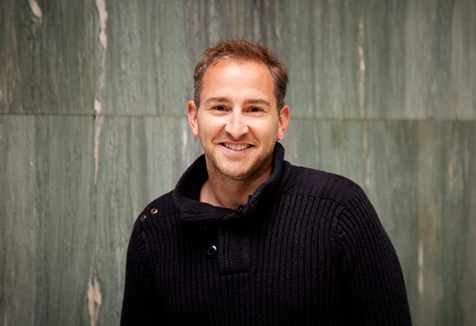It’s not about the money: Research reveals women are more interested in a man’s earning capacity than the size of his wallet

Despite ABBA’s insistence that women long for “money, money, money”, research has found that The Beatles were on the right path when they sang “money can't buy me love.”
Dr Peter Jonason from the University of Western Sydney is an expert in personality psychology and individual differences. With colleagues from Singapore Management University and New Mexico State University, he has completed a series of three studies on people’s preferences for “mates with resources”.
“Research on mate preferences has long found that individuals who have access to valuable resources are highly desirable as romantic partners, in particular to women,” says Dr Jonason, who is based in the UWS School of Social Sciences and Psychology.
“What was not understood – until now – was whether the source of a person’s income played a role in their attractiveness to potential romantic partners.”
In three separate studies, the preferences of 668 participants for mates with money, derived from a number of sources – including work income, inheritances, windfalls, and even embezzlement – was analysed.
In one of the studies, 100 women participated in an online survey in which they were asked to state whether they preferred a man who earned or inherited his money in a variety of relationships that differed in seriousness. The relationships ranged from marriage to one-night stand relationships.
90 per cent of women preferred having a romantic relationship with a man who earned his money, while only 5 per cent wanted to establish a romantic relationship with a man who inherited his money.
For one-night stands, less than 60 per cent of women wanted their partner to have earned his money, and only 40 per cent of women wanted a man who inherited his money.
“These results show that, as the relationships became less serious, the preference that the women had for mates who earned their money also diminished,” says Dr Jonason.
“However, it also reveals that regardless of the serious of the relationship, women would still prefer a mate who earned his money – it is just that the stringency of their selection criteria has been relaxed in more casual relationships.”
Dr Jonason says the results, published in the journal Personality and Individual Differences, are consistent with evolutionary theories which show that women place a high importance on a man’s capacity to provide for a family.
“Given the costly nature of rearing offspring in ancestral environments, women who failed to find successful mates would have struggled to reproduce. Women’s preferences for successful males would have been passed on to offspring, leading to the patterns we see today,” he says.
“In addition, it is rational for women to prefer mates who earn their income over those who simply have money. The ability to acquire a steady supply of income through direct effort reflects certain underlying qualities such as intelligence, and a strong work ethic. Picking a mate with these qualities is a safer bet for women because, if the money runs out, there is a greater chance their partner can regain financial stability in the future.”
Dr Jonason says the studies also revealed an insight into the importance of the source of a woman’s wealth to her potential male suitors.
“Across all sources of money, men maintained equal levels of willingness to date women – however, the level of willingness was slightly higher for earned money,” he says.
“This shows that men too have a preference for women with a strong earning capacity, but not to the extent that women do. Particularly when it comes to short-term relationships, personal wealth is less of a consideration for men.”
For more information, or to arrange interviews with Dr Jonason, contact the UWS Media Unit.
Ends
5 November 2012
Mobile options:




